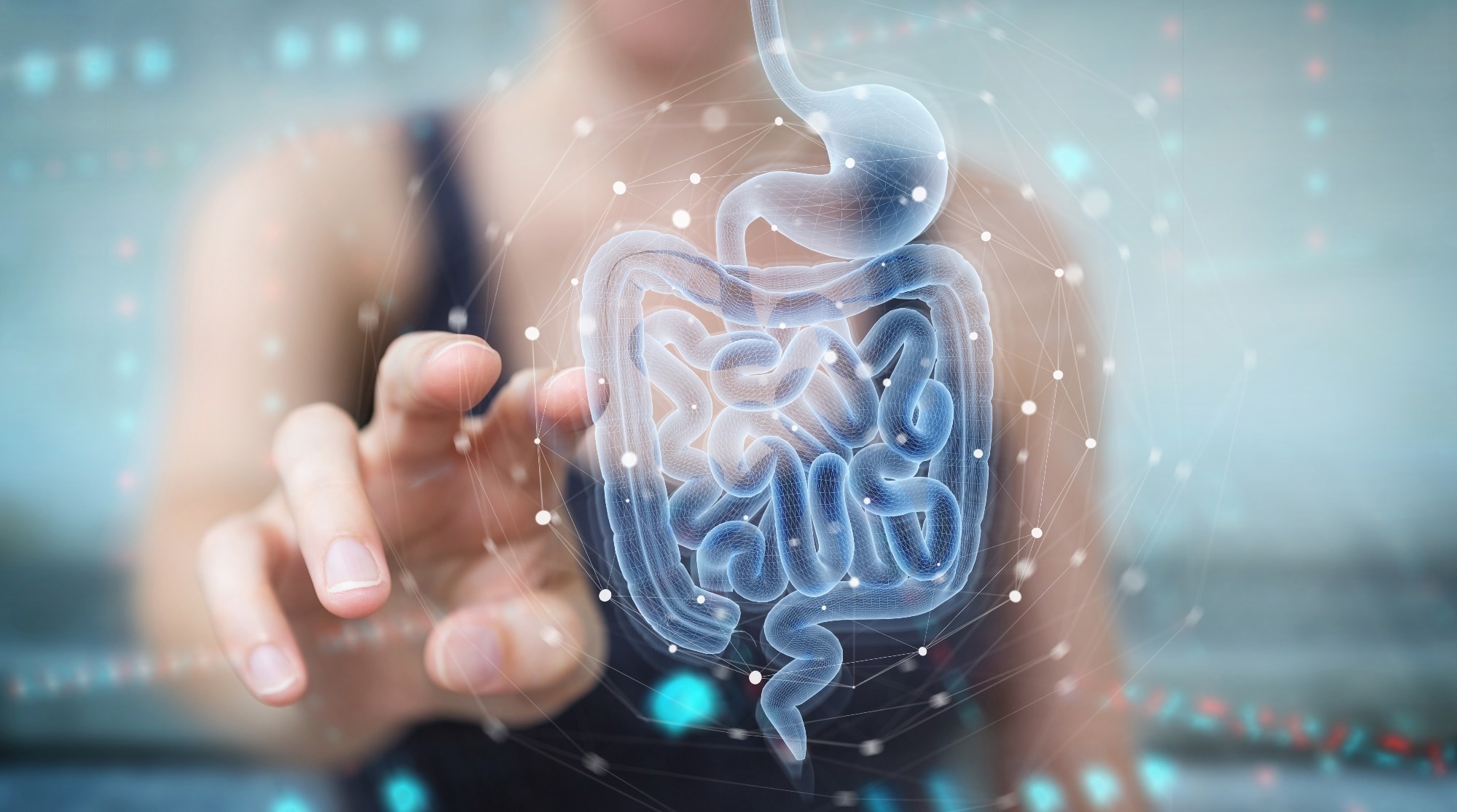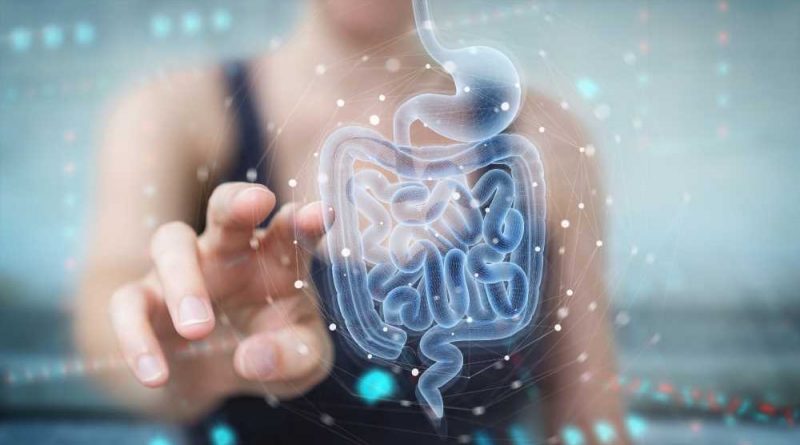What is the relationship between intestinal stem cells and the gut microbiota in regenerative medicine?
In a recent review published in the journal Frontiers in Medicine, a group of authors explored the relationship between intestinal stem cells (ISCs) and the gut microbiota and their role in maintaining intestinal health, thus highlighting their significance in regenerative medicine research and potential therapeutic applications.

Background
Stem cells are undifferentiated cells with the potential to develop into various cell types and are crucial for tissue development and regeneration. They are categorized into various levels of differentiation, such as totipotent and pluripotent stem cells.
The gut contains multipotent stem cells that continuously divide and differentiate to maintain the intestinal epithelium. It also hosts a diverse community of microorganisms, the gut microbiota, which plays a symbiotic role in various biological processes, including immune regulation.
Understanding ISCs
ISCs play a vital role in the regeneration of the intestinal epithelium, essential for digestion and nutrient absorption. The intestine consists of absorptive and secretory cells derived from ISCs located in the crypts.
Differentiation of ISCs leads to the formation of progenitor cells, which further mature into specific cell lineages. The leucine-rich repeat-containing G-protein-coupled receptor 5 (Lgr5+) stem cells and +4 stem cells are two distinct types of ISCs.
Lgr5+ stem cells are highly proliferative and long-lived, while +4 stem cells are quiescent reserve cells. Both types of ISCs contribute to the continuous turnover of intestinal epithelial cells, ensuring the proper functioning of the digestive system.
Exploring signaling pathways of ISCs
ISCs are regulated by crucial signaling pathways to maintain the balance between self-renewal and differentiation for the proper functioning of the intestines.
The Wingless-related integration site (Wnt) signaling pathway promotes ISC self-renewal and proliferation, while the bone morphogenetic protein (BMP) pathway regulates cell differentiation and prevents excessive growth. Mutations in the Wnt pathway, like in the adenomatous polyposis coli (APC) gene, are linked to colorectal cancers.
Notch signaling collaborates with Wnt to support ISC proliferation and promote intestinal repair after injury. Inhibited notch pathway leads to reduced cell numbers and compromised intestinal function. These pathways play vital roles in guiding ISCs toward specific cell lineages, contributing to the overall health of the gastrointestinal tract.
ISCs and their niche
ISCs are also regulated by a niche of surrounding cells, including stromal cells, endothelial cells, aneth cells, neural cells, and immune cells. Paneth cells maintain a sterile environment for ISCs through the secretion of antimicrobial factors and stimulate Wnt signaling for epithelial regeneration.
Stromal cells play a role in ISC morphogenesis, proliferation, and differentiation through Wnt signaling. Innate lymphoid cells (ILCs) produce cytokine interleukin-22, crucial for ISC survival and proliferation.
T-lymphocytes in the lamina propria support the immune response to pathogens and communicate with ISCs to encourage self-renewal. This complex network of niche cells ensures the proper functioning and maintenance of ISCs and the intestinal epithelium.
Gut microbiota
The gut microbiota is a diverse community of microorganisms residing in the gastrointestinal tract, consisting of bacteria, viruses, archaea, and fungi.
The composition of the microbiota is unique to each individual and influenced by various factors, such as early life events and lifestyle choices. The small intestine houses facultative anaerobes, while the large intestine harbors obligate anaerobes.
The gut microbiota indirectly affects the intestinal epithelium through metabolites produced during their metabolism. It plays essential roles in various biological processes, including defense against pathogens, immunomodulation, and nutrient metabolism. The interactions between the microbiota and intestinal epithelial cells contribute to gut health and the maintenance of the intestinal barrier.
Defence against pathogens
The gut microbiota protects the host from pathogenic bacteria by competing for nutrients, altering pH, and producing toxic substances. It employs both direct and indirect pathways, involving the host immune system. Disruption of the microbial community can lead to dysbiosis and various health issues such as inflammatory bowel disease, infections, allergies, obesity, and cardiovascular disease.
Immunomodulatory and regenerative impacts on the host
The human host's physiological system distinguishes beneficial gut microbiota from harmful pathogens to maintain a properly functioning immune system. Infections by harmful bacterial strains, like Clostridium difficile, can impede intestinal epithelium regeneration. However, "good bacteria" like Lactobacillus reuteri D8 stimulate intestinal recovery and growth.
The probiotic L. reuteri promotes Wnt/β-catenin signaling, enhancing epithelial proliferation via Lgr5 ISCs. The gut microbiota also influences the expression of proteins like erythroid differentiation regulator-1, vital for cell growth homeostasis and ISC proliferation.
Nutrient metabolism
The indigenous gut microbiota, comprising bacterial phyla like Bacteroides, Actinobacteria, Firmicutes, and Proteobacteria, require nutrients from undigested dietary substances for their metabolism.
As a result, metabolites like short-chain fatty acids (SCFAs), tryptophan derivatives, and peptidoglycans are produced. SCFAs have numerous physiological functions, including their function as an energy source for colon cells and regulating appetite control hormones.
Tryptophan derivatives stimulate the production of aryl hydrocarbon receptors crucial for intestinal health. Peptidoglycans act as immunomodulators and promote the maturation and proliferation of intestinal stem cells. These bacterial metabolites play significant roles in maintaining the homeostasis of the intestinal epithelium and supporting a healthy human host.
Clinical trials
Over 150 Clinical trials related to stem cells and gut microbiota are available in the clinicaltrials.gov database. Among them, one completed trial focuses on investigating the relationship between ISCs and gastrointestinal diseases.
A study by Helse Fonna explores the effects of fecal microbiota transplantation (FMT) on symptoms, quality of life, fatigue, ISC changes, enteroendocrine cells, immune system, and dysbiosis.
FMT involves transferring healthy fecal microbiota into the gastrointestinal tract of a recipient and is commonly used to treat Clostridium difficile infections. The trial involved stool sample collection, rigorous screening, and application of the solution via colonoscopy.
Conclusions
To summarize, many studies in this review show that the gastrointestinal tract's proper functioning relies on the interactions between ISCs and the gut microbiota. Both ISCs and gut microbiota play critical roles in maintaining the health of the intestines.
Dysbiosis, an imbalance in the gut microbiota, can have detrimental effects on the intestinal epithelium. Research on this topic is ongoing, and advanced technologies like next-generation sequencing (NGS) are being used to study gut microbiota in greater detail.
Understanding these interactions can lead to new insights into gastrointestinal health and potential therapeutic strategies.
- Ahmad Sophien AN, Jusop AS, Tye GJ, Tan Y-F, Wan Kamarul Zaman WS and Nordin F (2023). Intestinal stem cells and gut microbiota therapeutics: hype or hope? Front. Med. doi: 10.3389/fmed.2023.1195374. https://www.frontiersin.org/articles/10.3389/fmed.2023.1195374/full
Posted in: Medical Science News | Medical Research News
Tags: Archaea, Bacteria, Bone, Bone Morphogenetic Protein, Cardiovascular Disease, Cell, Clostridium, Clostridium Difficile, Colonoscopy, Colorectal, Cytokine, Digestion, Digestive System, Dysbiosis, Fatigue, Fatty Acids, Fecal Microbiota Transplantation, fungi, Gastrointestinal Tract, Gene, G-Protein, Immune Response, Immune System, Immunomodulatory, Inflammatory Bowel Disease, Interleukin, Lactobacillus, Large Intestine, Leucine, Medicine, Metabolism, Metabolites, Multipotent Stem Cells, Notch Signaling, Nutrients, Obesity, pH, Probiotic, Progenitor Cells, Proliferation, Protein, Receptor, Research, Short-Chain Fatty Acids, Signaling Pathway, Small Intestine, Stem Cells, Tryptophan

Written by
Vijay Kumar Malesu
Vijay holds a Ph.D. in Biotechnology and possesses a deep passion for microbiology. His academic journey has allowed him to delve deeper into understanding the intricate world of microorganisms. Through his research and studies, he has gained expertise in various aspects of microbiology, which includes microbial genetics, microbial physiology, and microbial ecology. Vijay has six years of scientific research experience at renowned research institutes such as the Indian Council for Agricultural Research and KIIT University. He has worked on diverse projects in microbiology, biopolymers, and drug delivery. His contributions to these areas have provided him with a comprehensive understanding of the subject matter and the ability to tackle complex research challenges.
